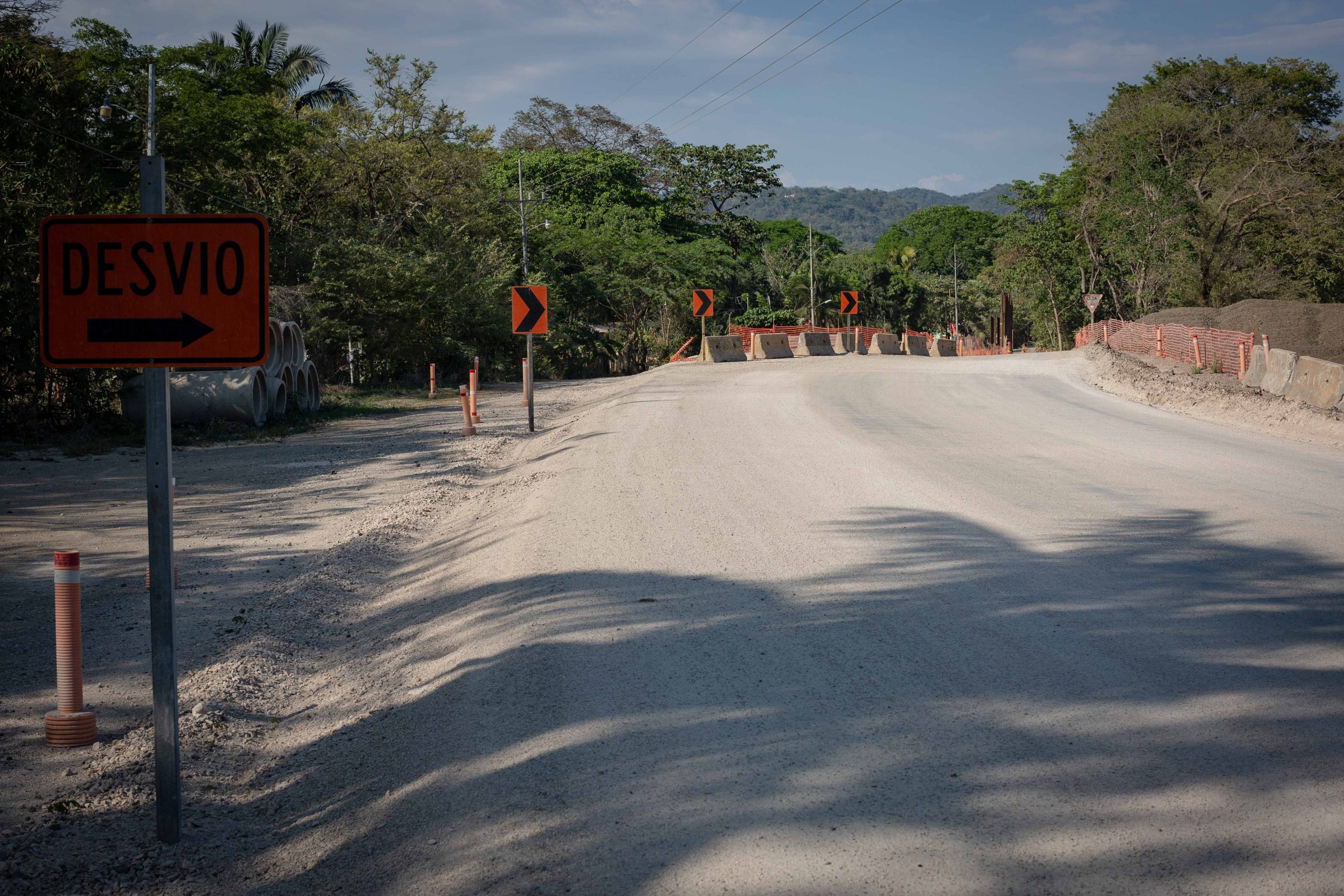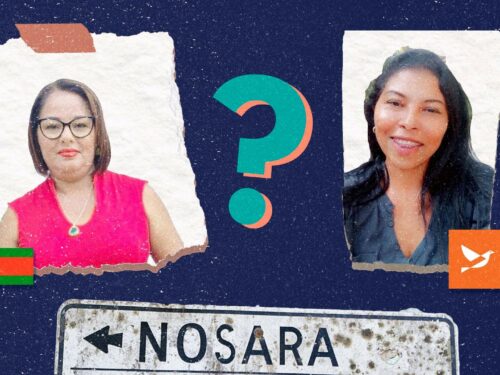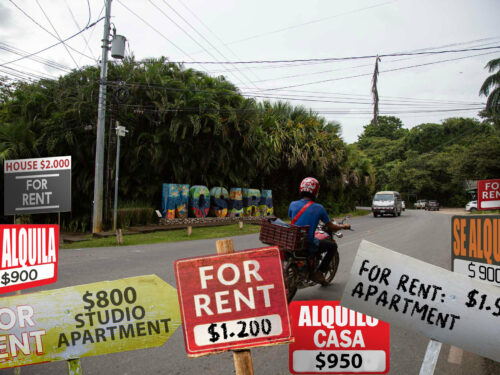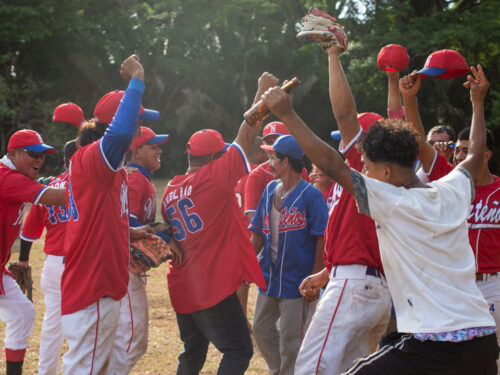
On March 14, Hazel Hernandez arrived at the bus stop in La Esperanza to wait for the bus that has taken her to the school in Bocas de Nosara since she began high school. But when it arrived, the driver explained to her and other students that from that day on, they’d have to be charged ₡1,000 daily, because “the high school no longer had money” to take them for free. That day, Hazel didn’t attend school. She didn’t have money to pay the bus fare.
Since 2019, the Ministry of Education (MEP) changed its scholarship selection process and imposed a series of limitations that significantly reduced the number of beneficiaries. Among them, Hazel, who is in eighth grade.
Since her family has a motorcycle– which another member of her family uses to work– MEP assumes that the student has the means to get to class, even though that isn’t the case. Even so, the bus route’s owner allowed her to ride for free for almost two years, compensating for that expense with the young people who did receive scholarships.
However, this year, MEP underwent a severe cut in the transportation budget, adding to the crisis it had already suffered since 2019. Although the institution requested an amount of ₡46 billion (about $70 million) for that line item, the Presidency only asked legislators for ₡30 billion (about $46 million) through the Republic’s Ordinary and Extraordinary Budget Law.
Although MEP affirms that the cuts affected transportation scholarships nationwide, the effects are even more severe in places like Nosara, where long distances and road problems increase fares and make it impossible for students to use alternative methods to get to classes.
On that route, they went from taking 73 kids in 2019 to only having enough of a budget this year for 54.
The cuts made it so the student transportation program doesn’t have sufficient budget funds to even meet the commitments already made in previous years,” the head of MEP’s Student Transportation Department, William Salazar Sanchez, told The Voice.
Since then, the ministry hasn’t been able to accept new scholarship applications and also hasn’t been able to renew others. Hazel, for example, can’t appeal to have that benefit again since there’s no budget for more students at this time.
Given the significant reduction in income due to the decrease in scholarship recipients, the owner of the student route in Nosara had to start charging the rest of the students who don’t have a scholarship and those who stopped receiving it this year, since the route was no longer profitable. The route now only has 54 minors with scholarships. The other 94 who used the transportation haven’t been able to get the scholarship. These numbers were calculated by an organized group of mothers who spoke with The Voice of Guanacaste. MEP also confirmed the data.
“To us, it’s unfair, because our children already walk almost three kilometers (almost 2 miles) just to get to the bus stop. It’s difficult because there are many single mothers in Nosara who simply can’t pay that amount, no matter how little it may seem,” said Hazel’s mother, Elizabeth Molina.
Long distances in Nosara prevent studies
Most of the affected students live in the communities surrounding Nosara, such as Barco Quebrado (20 kilometers away, which is about 12 miles), Las Delicias (16 kilometers away, or about 10 miles), Garza (13 kilometers away, about 8 miles) and La Esperanza (10 kilometers away, which is about 6 miles). Given the long distances, most families decided not to send their children to classes anymore, reported Yenifer Moreno, a mother and leader of the organized mothers’ movement.
Without transportation, I don’t see a way to be able to send my children. They need it. I’m a single mother, I take care of my mom and I have a little daughter and I can’t work at the moment. I’m anguished, because without that help, my children would simply end up not getting to study,” said Antonia Castrillo, mother of two students who don’t have a scholarship.
Antonia has been able to send her two children because a group of foreigners from the community are helping her. However, she doesn’t know if she’ll be able to keep doing so in the coming months.
During the month of March, the mothers collected more than 100 signatures from community members to ask MEP to reconsider granting scholarships to the rest of the students who need the stipend. The organized group is also working with the development associations of their communities, such as Las Delicias, to seek temporary alternatives while the ministry resolves the situation.
It’s difficult to get the children there. Most of us are single mothers who earn minimum wage and who aren’t at home to take them [to school],” said Moreno.
For mothers, the last option is to send their children on foot, because in addition to the long distances they would walk, they fear that they might be robbed or physically or sexually assaulted on the long journey.
“I can’t tell my son to go walking because it’s almost four hours on foot, or to ask for a ride, because something could happen to him,” Moreno added.
“MEP doesn’t care about the safety of the children of Nosara, something that should be an obligation for them,” Ofelia Obando, president of the Las Delicias Development Association, also lamented.
Although the driver offered them an affordable form of payment, the mothers still have to collect about ₡1.8 million (about $2,800) per month (₡20,000 per month per student, which is about $30) so that everyone can get to the school.
MEP Gave Warning Last Year
The head of student transportation for MEP stated that the institution had already anticipated an increase in students in coastal areas who would need the transportation stipend for the first time, mainly due to the economic impact of the COVID-19 crisis. However, he denounced that the Presidency didn’t consider this factor when granting them the regular budget.
The increased levels of unemployment as a result of the pandemic caused shortages in families that previously didn’t have need and that now don’t have enough income in the nuclear family to pay for transportation,” said Salazar, MEP representative.
In September of 2021, Minister of Education Giselle Cruz explained to the legislators on the Treasury Affairs Commission that the cuts suggested by the government would cause the suspension of transportation and meal scholarships for more than 100,000 students nationwide. Even so, the legislators accepted the cuts as proposed by the executive branch.
At that time, President of the Republic Carlos Alvarado justified the decision as “something that had to be done.” That’s how he put it when questioned about the MEP food and transportation cuts during a press conference in September:
“Beyond the government, it’s the situation in the country. Any budget movement means taking something away from someone to give something to someone else…. It’s very painful, but tell me, where do you cut?” Alvarado justified.
MEP Processes Extraordinary Budget
Salazar said that MEP is taking steps to request an extraordinary budget that would cover the transportation needs of scholarship students and new applicants. This request is already being processed in the Legislative Assembly and will need more time to get a response.
In addition, MEP’s transportation department representative stated that they are updating their databases to include, no later than April 29, current records of the program beneficiaries that continue at each educational center, as well as applicants for 2022.
That way, the ministry will have a better idea of all the students who currently need the scholarship. Bocas de Nosara high school hasn’t yet sent its updated databases.
These procedural periods mean that Nosara students won’t be able to use the transportation to go to classes for the next few weeks. That’s why the mothers are accepting donations through Sinpe and Paypal.
The mothers are accepting donations to be able to send their children to school. Contributions can be made by Sinpe mobile to the number: +506 8625 8475. For the motive, put: “estudiantes Nosara.”







Comments